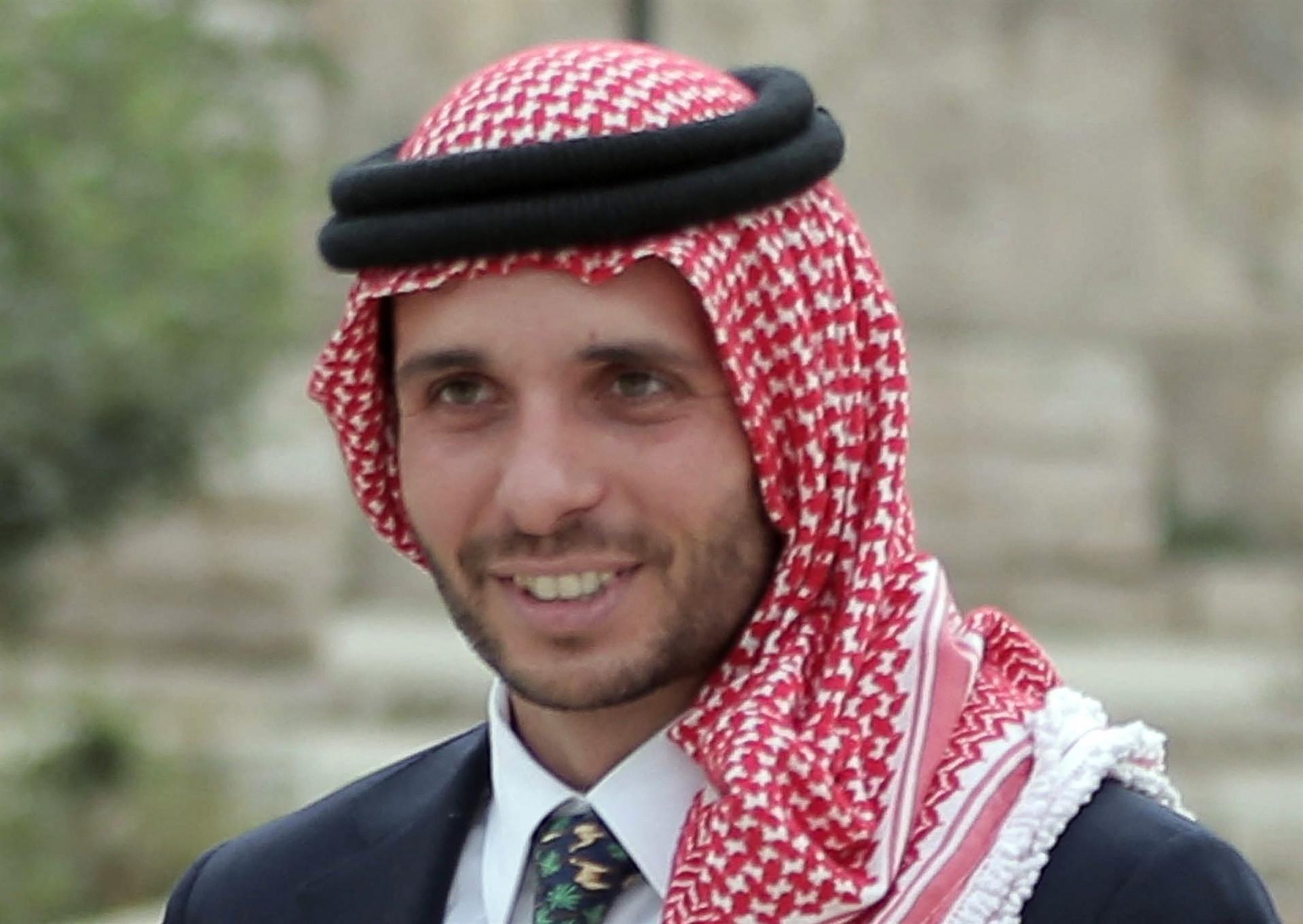
Jordan’s official media warned on April 4 that security and stability are a "red line", a day after several senior figures were detained and a half-brother of King Abdullah II said he was put under house arrest.
Videos posted online showed a heavy police deployment in the Dabouq area near the royal palaces on the edge of Amman, while former crown prince Hamzah bin Hussein said he was confined to his home.
In a video the BBC said it obtained from his lawyer, Prince Hamzah said several of his friends had been arrested, his security detail removed and his internet and phone lines cut.
Prince Hamzah denied being part of "any conspiracy or nefarious organization", but said the Hashemite kingdom had "become stymied in corruption, in nepotism, and in misrule" and that nobody was allowed to criticize the authorities.
The official newspaper Al-Rai on April 4 warned that Jordan’s "security and stability" were a "red line that must not be crossed or even approached", and said an official statement on the events was expected later in the morning.
Official news agency Petra named former close aides to the royal family Bassem Awadallah, chief of the royal court in 2007-2008, and Sherif Hassan bin Zaid among an unspecified number of suspects arrested.
The pair were detained for "security reasons", Petra said, quoting a security source.
Hamzah is the eldest son of late King Hussein and his American wife Queen Noor. He has good relations officially with Abdullah, his half-brother, and is a popular figure close to tribal leaders.
Abdullah had appointed Hamzah crown prince in 1999 in line with Hussein’s dying wishes, but in 2004 stripped him of the title and gave it to his own eldest son Hussein.
The army denied Saturday that Prince Hamzah, who holds no official position, had been detained.
"What has been published about the arrest of Prince Hamzah is not true," said Joint Chiefs of Staff head Major General Yousef Huneiti.
But the prince had been "asked to stop some activities that could be used to shake the stability and security of Jordan", he said.
The Washington Post said the former crown prince was "placed under restriction" as part of a probe into an alleged plot to unseat the king.
"The move followed the discovery of what palace officials described as a complex and far-reaching plot," it said, quoting a senior Middle East intelligence official.
The alleged scheme "included at least one other Jordanian royal as well as tribal leaders and members of the country’s security establishment," the Post added.
But in a front page editorial on Sunday, Al-Rai denied such reports.
"Some people are trying to create the illusion of an attempted coup in Jordan, and trying to implicate Prince Hamzah in their sick fantasies," it said.
"All that happened was that some of the prince’s actions were used to target Jordan’s security and stability."
U.S. State Department spokesman Ned Price said Washington was "closely following" the events in its close regional ally.
"We are... in touch with Jordanian officials. King Abdullah is a key partner of the United States, and he has our full support," he said.
Neighbouring Saudi Arabia reacted swiftly to the developments in Amman.
"The kingdom stresses its full support for the Hashemite kingdom of Jordan ... and for the decisions and measures taken by King Abdullah II and Crown Prince Hussein to safeguard security and stability," it said.
The secretary general of the Arab League, in a statement posted on Facebook, said the organization "expressed full solidarity" with the measures taken to maintain security and stability.
The Gulf Cooperation Council also reaffirmed support for "all decisions and measures" taken by Abdullah.
Awadallah, a former finance and planning minister educated in the United States, was close to the king but has also been a controversial figure in Jordan.
Before becoming royal court chief in 2007, he was head of the king’s cabinet in 2006.
He had played a key role pushing for economic reforms in the country before he resigned in 2008 amid criticism over alleged interference in sensitive political and economic issues.
April 3's security sweep comes as Jordan prepares to mark 100 years since the new kingdom then named Transjordan was established alongside Palestine under British mandate.
It declared independence in 1946. Despite having little oil wealth and severely lacking water, the kingdom has managed to survive repeated wars in the region which have sent waves of refugees across its borders.